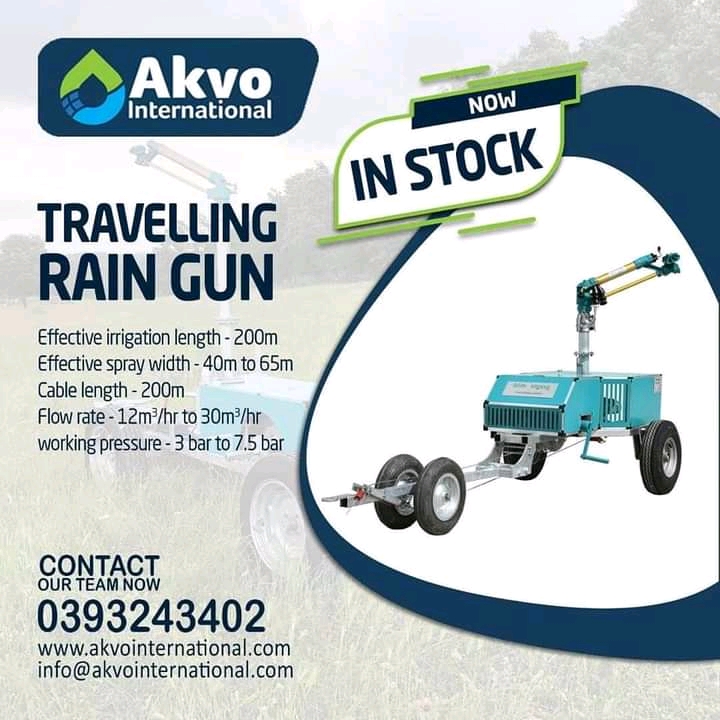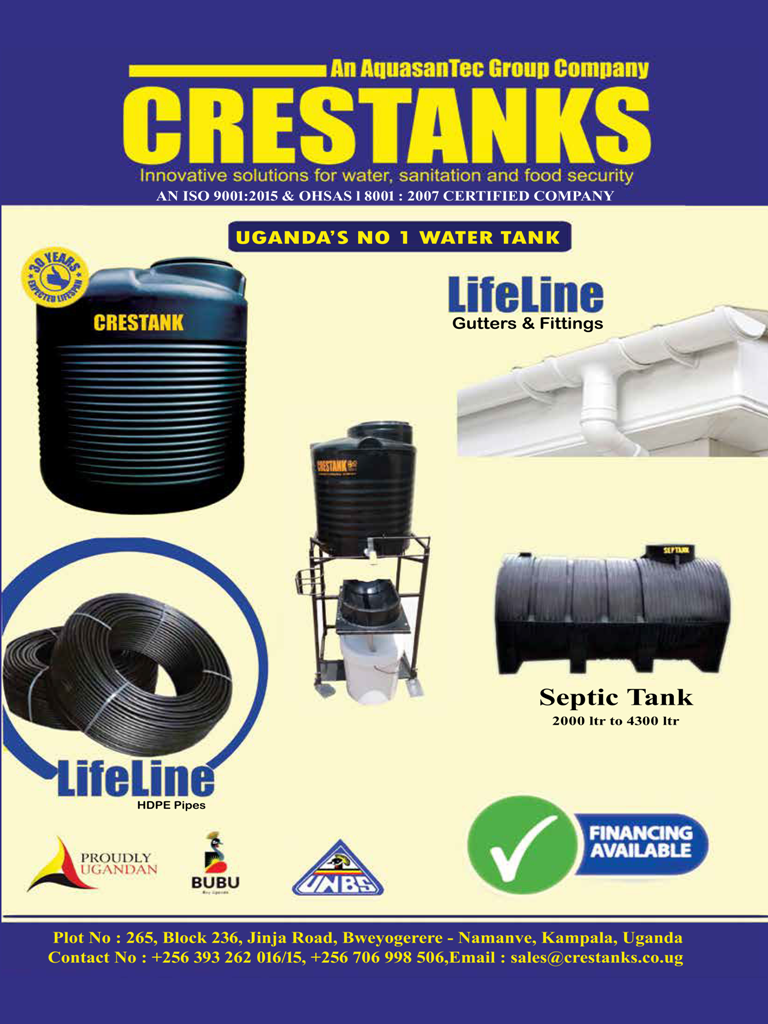KYANGWALI REFUGEES SETTLEMENT
November 3, 2022
The extension of water and improvement of latrine facilities’ coverage has helped keep life flowing among thousands of refugees in Kyangwali refugee settlement in Kikuube district of Western Uganda.
With an average daily refugee influx of between 30 and 50 at the settlement, there has always been a high pressure exerted on the available water and sanitary facilities in the settlement, which is inhabited by over 125,981 refugees.
Oxfam is providing water, sanitation, hygiene, environment, and energy services to refugees and host communities.
One of the beneficiaries of the WASH project by Oxfam is Harriet Ntachunanse from Malembo Block 5 in the Kyangwali Refugee settlement, where access to clean water has been difficult.
Ntachunanse says the extension of water to the settlement by Oxfam has brought relief to their lives. She says that the long trek for water has been brought to an end.
”We were fetching water far away from here. We are very glad that these water projects have been extended here. We were getting tired, and we would go with our children and almost spend a night at one water source very far away from here,” Ntachunanse says.
ARefugee fetching water from one of taps provided by Oxfam in the kyangwali refugee
Health Dividends gained:
The provision of safe water has helped clramp down on water-borne diseases like watery diarrhea, which was always prevalent among refugees.
Jacob, a village health team volunteer in Malembo Block 5 in Kyangwali settlement, says there is a great improvement in water access and latrine coverage in the refugee communities.
”Before Oxfam intervened, people were struggling with waterborne disease because of open defecation and using contaminated water. However, with Oxfam, people are able to access clean and safe water and also have standard latrines. Some are still hesitant to adopt sanitation and hygiene standards, but we are sensitizing them.”
Local leaders in the refugee settlements say that the improvement in water access and latrine has improved lives in the settlement.
Bahati Bugyingo, the Chairman for Malembo block 16 in the settlement, says there has been a great visible improvement in water, sanitation, and hygiene aspects of life among the refugee communities.
”The situation was appalling because we had no water and latrines. We appreciate Oxfam’s interventions which have changed our lives. They have done a great job in giving people practical skills in the construction of standard latrines, which has improved sanitation in the settlement” Bugyingo says.
High refugee influx exerting pressure on water sources:
Serge Gai, the Refugee representative Chairperson for Kyangwali settlement, says the settlement has over 125,981refugees who are exerting pressure on the available water sources.
”The water is not enough for the population. Yes, Oxfam is working, but we have a high population. If it is to add on the sponsorship for water, they should do it so that we can cater for the large population. Some places are water-stressed, and this needs more effort to work on it.” Serge says.
Odokonyero Alfred, the Oxfam Public Health Engineering based in Kyangwali Refugees Settlement, says the 16 water systems are able to produce an average of 1.8 million litres of water serving over 125,000 refugees. This, according to Odokonyero, is not yet enough.
”The water coverage is not yet enough. We are still at 14.7 litres per person per day which is lower than the expected minimum of 15 litres per person per day as recommended by UNHCR and 20 litres per person per day as per Sphere standards.
A collective response
Oxfam collaborates with other actors in the response. For example, the district has offered support in drilling handpumps, and UNHCR is also directly supporting the response.
Mbusi Marine RC3, in charge of health and WASH, says ”We work with Oxfam hand-in-hand and where possible, we go with them to the field. There are some places like Maratatu where sanitation was not good, but we instituted a committee, and things are now okay. We request that Oxfam should be given more support more especially in areas of handling solid waste in the settlement.” Marines says.
An Oxfam official and a settlement leader inspecting a piped water supply system in the settlement
Judith Akite, a public health promotion assistant with Oxfam in charge of Zone E and D says open defecation was a common cause of sanitation risks like diarrhea disease among children below five years. ”Before, there was a lot of open defecation, and this comes with a lot of health risks especially diarrhea among children of five years and below. With continuous sensitization from VHTs, Oxfam and other leaders, open defecation is minimal and there is positive practices’’ Akite says.
She says latrine coverage has reached about 77percent in the whole settlement.
Enid Brenda Naikoba the Oxfam public health promotion officer in charge of sanitation and hygiene in Kyangwali Refugees settlement, says Oxfam is working as an implementing partner for United Nations High Commission for Refugees-UNHCR in Kyangwali and the office of the prime minister for delivering water sanitation hygiene-WASH services within the settlement.
She says that Oxfam is running 16 water systems, with 15 in the settlement and one at the Sabagoro Transit Center where they treat and supply water to the different communities
”We also do water tracking and currently, we have one village where we are tracking water in Malembo. At the moment, we stand at 14.7 litres per person per day as water per capita that we are supplying which is still below the required UNHCR standard of 20L/p/d. We have new developments coming up at Kinakyaitaka system, and by next year we shall increase to 18 liters per person per day” Naikoba says.
Naikoba says Oxfam also supports the repair of water hand pumps within the settlements and nearby host communities and household latrine construction.
”For sanitation and hygiene, we support household latrine construction within the settlement. For this year, we aim to support a total of 1912 households with latrine construction materials, and we are promoting the use of doom-shaped slabs because they can be reused, besides reducing the cutting down of trees for logs that were initially being used for latrine construction” Naikoba says.
She says in 2022 only, over Shs 683 million has been invested in water supply while Shs 304 million has been invested in providing support in latrine facilities.
Hygiene promotion
Naikoba says that Oxfam has been at the helm of hygiene promotion in the settlement by working with Village Health Team-VHTs in supporting WASH activities in the communities.
”The VHTs move house to house sensitizing people on different messages like handwashing, latrine use and maintenance, food hygiene, environment cleaning and all safe practices to promote a health living at a household and community level,” Naikoba says.
She adds, ”We also provide WASH facilities to communities like T-P taps at household level and institutions to promote handwashing, we have also provided water storage containers to 2000 households, and we also offer support to the new arrivals”.
“However, we still face some challenges in some communities that are not compliant because, to some people, WASH is not a priority for them. We continue sensitizing them and encouraging them to feel a sense of ownership of these projects” Naikoba says.


















